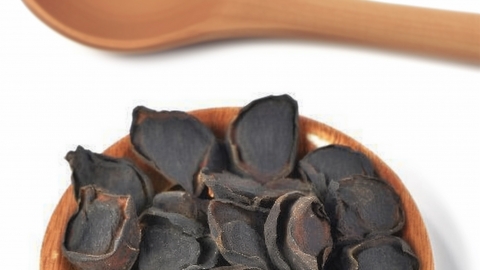The difference between Black Fu Pian and Black Shun Pian
Black Fuzi and Black Shunpian generally refer to the same medicinal substance, both derived from the lateral tuberous roots of the Aconitum plant in the Ranunculaceae family.

The processing of Black Shunpian involves several steps including excavation, washing, soaking, slicing, and sun-drying. Different processing methods yield various forms of the product, such as Black Shunpian and White Fuzi. It has a sweet and pungent taste, is hot in nature, and is toxic. It acts on the heart, kidney, and spleen meridians. It is primarily used to treat conditions caused by yang deficiency, such as collapse from loss of yang, cold extremities, abdominal pain with diarrhea, and a faint, nearly imperceptible pulse. It is also used for rheumatic conditions causing joint pain, and cold pain in the waist and knees.
Black Shunpian is toxic and is contraindicated in cases of yin deficiency with yang excess, true heat with false cold symptoms, and during pregnancy. Additionally, this herb should not be used concurrently with Pinellia, Trichosanthes fruit, Trichosanthes seed, Trichosanthes peel, T天花粉, Sichuan Bulbus Fritillariae, Zhejiang Bulbus Fritillariae, Pingbeimu, Yibeimu, Hubei Bulbus Fritillariae, Baitan, or Baiji.
Black Shunpian contains aconitine and other toxic components, so dosage must be strictly controlled during use. Long-term or high-dose administration is not recommended, and it should be used cautiously in pregnant women and individuals with weak constitutions. In clinical practice, its use should follow medical advice, and self-medication should be avoided.




